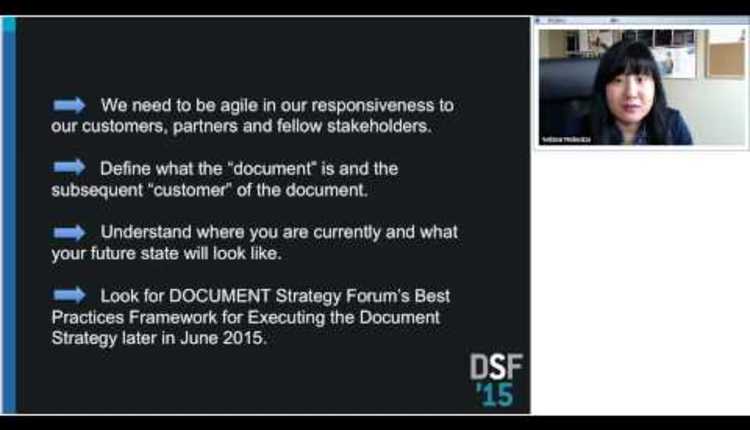The Danish physicist Niels Bohr was right when he said,"Prediction is very difficult, especially about the future." Perhaps at no time in the history of records management has that been more appropriate than today. Records management has been marked by slow, somewhat predictable, advances over the last 9,000 years. Stone etchings gave way to clay tablets, followed by animal skins, then paper and, finally, today's modern digital world. However, today's world is changing at an unprecedented rate — making it difficult for professionals to keep up and manage information effectively. Here are six predictions to help you be prepared.
1. Privacy is the new driver
The last few months have seen the US begin to take privacy seriously. From Google and Facebook being squarely placed in politicians' sights, as these tech companies collect more information than has even been possible, to information and security lapses, ranging from Sony to financial services firms, privacy is becoming increasingly important. Look for it to become even more important as politicians insist on new rules. In Europe, the rules regarding privacy are complex and serious. Furthermore, in February, the White House released a draft set of Internet privacy regulations. We are only at the beginning of one of the most fundamental changes in how and why we manage content.
2. Regulations increase
As if HIPAA and Sarbanes—Oxley weren't enough, new records-related regulations continue to increase. Some, like the "Volcker Rule," designed to reduce insider trading, will provide little usefulness but are effective at getting supporters re-elected, as well as keeping records managers employed. Regulations are second only to campaign promises for politicians: easy to say, and they don't have to follow them.
3. The cloud
The "cloud" is already here but is beginning to accelerate when it comes to content and records management. Enterprise content management (ECM) cloud-based companies, like Box.net, Dropbox and SpringCM, continue to gain customers at a rapid rate. Google has indicated they will be getting into the space. Additionally, Microsoft is adding functionality with their Office 365 program to complement their Azure hosting services with SharePoint. As organizations look to reduce the size of their data centers, they are increasingly learning that the cloud and virtualization are vital.
4. SharePoint evolves
Ok, so SharePoint doesn't provide 5015.2 records management functions out of the box, but a lot of organizations are finding that they don't need it or turning to third-party packages such as OmniRIM. SharePoint is one of the fastest-growing business units at Microsoft, and it is replacing vast amounts of infrastructure, including ECM and portals at many organizations. The move to the cloud complicates SharePoint because most cloud implementations do not easily support customizations. However, customizations have been what drive a lot of SharePoint to date. Microsoft is pushing their new "Metro" interface for much of their offerings, and it isn't clear whether future versions of SharePoint will adopt Metro. SharePoint, thus, becomes the awkward teenager unsure of where the product will go.
5. Some give up on records management
Google executives famously suggested that organizations just keep everything and not worry about records management (RM). However, smart organizations realized that liability and other costs outweighed the policy of "keep everything." Yet, with the high costs of implementing records management, a few organizations are beginning to rethink the idea, veering to the ideology of "producing nothing" or "keeping everything." For example, one huge French technology company banned email, and some applauded them for it. Others have quietly changed corporate policies to just begin keeping everything. While this approach is wrong for most, in a few cases, the economic return on investment actually supports this approach. Look for organizations to openly question "why" they do RM and why it costs so much.
6. Shared drive cleanup
Even organizations that abandon traditional records management still want to control their storage costs. Shared drive cleanup programs eliminate duplicates and "e-trash," resulting in significant cost savings. Payback periods of less than a year are not uncommon. The savings aren't just from storage: There are corresponding savings from backups, e-discovery and more. Organizations looking to migrate from old ECM systems to new platforms can realize significant savings by first doing the cleanup. The next few years will be white-hot for these services.
At the end of the day, it is difficult to predict the exact pace of these changes, but the forces behind them continue to accelerate. Smart managers will begin planning while cautiously anticipating the pace of change to only accelerate.
DAN ELAM is one of the nation's best-known experts on content and records management technology. He is an AIIM Fellow, former US technical expert to the International Organization for Standardization (ISO) and has presented on ECM to the Virginia Commission on Government Reform and Restructuring. Mr. Elam has founded various companies in the industry and serves as chief operating officer for New York City-based RSC Solutions. For more, email delam@rscsolutions.com.















